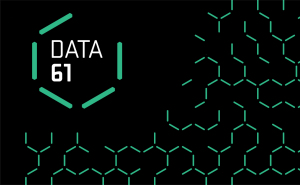
 CSIRO’s Data61 division stands to be a major beneficiary of new laws proposed by the Productivity Commission to give consumers the right to opt out of having their data collected and shared.
CSIRO’s Data61 division stands to be a major beneficiary of new laws proposed by the Productivity Commission to give consumers the right to opt out of having their data collected and shared.
Several financial services companies and government agencies including the New South Wales Data Analytics Centre are now trialling its N1 Analytics software, which it claims will allow data scientists to analyse and act on the behaviour of their customers without an individual’s data ever being exposed.
“It’s by accident as much as design, but there is a real push now for what we are doing in what we call ‘confidential computing’,” Data61 chief executive Adrian Turner said.
The push came last week from the Productivity Commission’s draft report on data availability and use, which urged more sharing of data across organisational boundaries to enhance the greater good.
However, it also called for unprecedented rights for individuals to control their own data, including the right to have no data collected on them in most circumstances if they wished.
Valuing trust
A new KPMG survey of 7000 people including 500 Australians has revealed 82 per cent are no longer comfortable to trade their personal details for free services online.
Mr Turner said the studies showed trust has become the most valuable currency in the data-driven economy.
He said he hoped N1 would allow companies to continue reaping all the insights from the data deluge, while retaining customer loyalty by staying ahead of data privacy regulations.
He said he expected data privacy requirements to become punitive once the Productivity Commission hands down its full report in March.
Apple had proven most adept at handling this “data doubled-edged sword” to date, he added.
“What Apple was doing in refusing government demands to unlock an iPhone was building enough public trust to be able to move their health business, which handles its customers’ most sensitive data, from monitoring to diagnostics,” Mr Turner said.
N1 Analytics is based on cryptography which has been proven and widely used for more than 15 years, according to the head of Data61’s “confidential computing” division, Dr Stephen Hardy.
“It puts two encrypted numbers together to get a third encrypted number, such that if you decrypted them all you would see that one and two added up to the third, but the point is you can’t see,” he said.
“It allows a bank’s data scientist, for example, to know the average income of a pool of customers without knowing any of their underlying incomes.”
Insightful software
N1’s patents are around the application of cryptography to machine learning and data analytics.
One claimed feature of the software, for which Data61 hopes to achieve commercial sales in the first quarter of 2017, is an ability to reduce large databases to synthetic “data objects”, whose inter-relationships can then be studied for insights.
“It will allow governments to analyse citizen data without building these unwieldy linked databases that are vulnerable to attack, and will allow banks and telcos to exploit all the data they collect while completely respecting personal privacy,” Dr Hardy said.
The software also provides an audit trail for every decision made based on the data insights it provided, a potentially valuable tool if the government ends up adopting the Productivity Commission’s call for a consumer’s right to appeal automated decisions.
N1 is a pivot from a CSIRO project in personalised medicine, which developed an app to process somebody’s genome data and calculate their ideal dose of anticoagulant drug Warfarin, without actually revealing the make-up of their genome.
“The need is there because if your genome information escapes there are consequences, you might not be able to get health or life insurance for example,” Dr Hardy said.
However, the app is yet to be commercialised because Data61 deemed health data “too sensitive and complicated a place to start” in its development of confidential computing products.